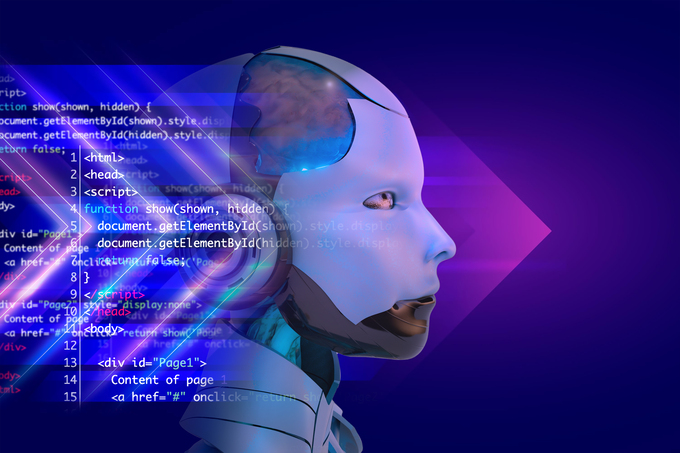What is GitHub Copilot and JetBrains AI Assistant?
GitHub Copilot is an AI encoding assistant. GitHub developed it with OpenAI. It uses advanced machine learning to suggest encode as you type. It can suggest snippets and whole functions. This tool seeks to boost developer productivity. It will give context-aware suggestions. This will help in writing complex new code. On the other hand, Jet Brains AI Helper integrates seamlessly into JetBrains IDEs. It uses smart algorithms. They analyze your project and suggest ways to improve code quality. We aim to help developers with coding.
This includes optimizing code and suggesting new approaches. Both tools are the future of programming help. Each caters to different developer workflows and preferences. The addition of Copilot chat functionality is another example of how AI is changing the landscape of coding, making the process more interactive and collaborative. As they evolve, their impact on how we approach coding will undoubtedly grow stronger.Overview of GitHub Copilot
Git-Hub Copilot is an AI encoding helper. GitHub made it with OpenAI. Launched in 2021, it aims to streamline development workflows and enhance productivity. At its core, Copilot uses machine learning. It is trained on many public code repositories. This enables it to suggest contextually relevant code snippets as developers type.
One standout feature is its ability to understand comments and natural language prompts. Developers can describe the function they want, and Copilot generates corresponding code blocks. This intuitive approach transforms how programmers think about coding tasks.
Copilot learns from user interactions. It refines its suggestions over time, based on users preferences and project needs. Its use in popular environments makes it accessible to all.
Introduction to JetBrains AI Assistant
Jet Brains AI Helper is a powerful tool. It improves the coding experience for developers. What sets Jet Brains AI Helper apart is its ability to learn from your coding style. It adapts to your preferences as you work. It will offer more relevant support over time. It integrates with popular languages like Python, Java, and Kotlin. So, its versatile enough for diverse projects. The goal is not just efficiency. Its to improve code quality with smart, tailored recommendations. This approach, like Jetbrains ai, focuses on personalized assistance to enhance developer productivity.
Feature Comparison
When pitting Git-Hub Copilot against Jet Brains AI Helper, their features shine through distinctly. Git-Hub Copilot thrives on its context-aware code suggestions. It analyzes existing code and offers snippets that fit seamlessly. Developers often find it intuitive and responsive. JetBrains Helper takes a different approach. It is deeply integrated into the JetBrains ecosystem. Its strength lies in advanced refactoring tools and comprehensive language support.
Both tools excel at auto-completion but differ in how they present suggestions. Copilot tends to generate code based on comments or previous functions. JetBrains focuses more on structuring projects.
Code Completion Capabilities
Code completion is a vital feature for any AI encoding helper. Git-Hub Copilot excels here. It uses machine learning to predict and suggest encode snippets as you write. It scans your context and offers real-time suggestions, making the coding process smoother.
Both tools have unique strengths. They suit different preferences in the programming community. Each has fans who swear by its effectiveness in enhancing productivity while coding.
AI Assistance in Writing Code
AI assistance in writing encode has transformed how developers approach programming tasks. Tools like Git-Hub Copilot and Jet Brains AI Helper use advanced algorithms. They suggest code, snippets, or even full functions based on context. These intelligent helpers analyze the existing code structure and offer real-time recommendations. This can save time on dull tasks.
1. Programmers can then focus on complex problem-solving. 2. These tools learn from user preferences. 3. They adapt suggestions over time, enhancing accuracy and relevance. 4. ?oding is now less about memorizing syntax. 5. Its more about creativity and innovation.Its essential to remember that AI is not infallible. While it offers great support, developers must still review suggestions critically. Balancing trust in technology with personal expertise remains crucial for effective coding practices.
Integration with Different IDEs
Git-Hub Copilot shines in its versatility. It works well with popular editors, like Visual Studio Code, Neovim, and JetBrains. This flexibility lets developers improve their coding experience. It works in any environment they prefer. JetBrains AI Helper is for JetBrains tools, like IntelliJ IDEA and PyCharm.
The integration is seamless. Users can use AI without disrupting their workflow. Both helpers focus on code completion and suggestions. However, their context differs due to the IDEs capabilities.
Git-Hub Copilot works well in more settings. But, it may lack depth in JetBrains environments compared to its native assistant. Your choice may hinge on which IDE you use most frequently. That could determine which tool feels more intuitive for your development needs.

Usage and Integration
Git-Hub Copilot shines in popular code editors, like VS Code. Developers can start coding right away. It suggests lines and snippets in real-time. This intuitive setup enhances workflow and keeps focus intact. It often comes down to personal habits and preferred programming environments.
Its not just about functionality. Each tool has found its niche among developers eager for efficient coding.
Using GitHub Copilot in Different Programming Languages
Git-Hub Copilot shines when it comes to versatility across various coding languages. Whether youre writing Python scripts or JavaScript apps, it will help you. Its adaptive learning large language models is the reason. For Python devs, Copilot gives smart suggestions. They improve data tasks. It understands libraries like NumPy. In JavaScript, it excels at predicting patterns in frameworks like React and Node js. This can significantly speed up development time while ensuring code quality.
| Programming Language | Git-Hub Copilot Capabilities |
|---|---|
| Python | Provides comprehensive code suggestions for data processing, web frameworks (e.g., Django), machine learning, and scripts. Offers error handling and API call snippets. |
| JavaScript | Suggests front-end and back-end code, including React, Node.js, and basic DOM manipulations. Helps with event handling, state management, and API requests. |
| Java | Generates object-oriented code, design patterns, generate tests, and refactoring suggestions for frame works like Spring and Android development. |
| TypeScript | Offers type-safe code suggestions, including complex types, generics, and better integration with frame works like Angular or React. |
| Ruby | Helps generate concise Ruby on Rails code, including controller actions, model definitions, and Active Record queries. Provides syntax for typical Ruby idioms. |
| Go | Supports backend code generation for microservices, APIs, and concurrent programming patterns, offering idiomatic Go suggestions. |
| C++ | Assists with low-level memory management, complex algorithms, data structures, and provides suggestions for common libraries like STL. |
| PHP | Suggests web development code for frame works like Laravel or Symfony, helps with routing, ORM queries, and error handling. |
| C# | Offers suggestions for .NET applications, Unity development, and clean architecture patterns. Helps with ASP.NET Core backend logic. |
| Swift | Generates code for iOS development, including SwiftUI and UIKit, and helps with networking, persistence, and UI components. |
| Kotlin | Assists in Android development with Android Studio, including suggestions for MVVM architecture, UI bindings, and Jetpack libraries. |
| Rust | Suggests memory-safe patterns, idiomatic Rust code for systems programming, concurrency patterns, and error handling. |
| Shell Scripting | Provides code snippets for common shell operations, including file manipulations, automations, and system process management. |
| SQL | Offers SQL queries, optimizations for relational databases, including joins, indexing, and data migration scripts. |
Integration of JetBrains AI Assistant with Popular IDEs
The integration provides real-time code suggestions and context-aware help. It learns from your coding style over time, making it increasingly intuitive. This tailored approach means you get relevant tips just when you need them. In addition, JetBrains ecosystem supports many languages out of the box. The AI Helper doesnt give generic advice. It adapts its guidance to the specific language.
Developers appreciate how easily they can switch between projects without losing functionality. Each JetBrains tool keeps its unique features. It also benefits from AI enhancements. This synergy not only boostsproductivity but also improves the development environment. For instance, AI-powered suggestions for commit message generation can streamline the version control process and improve code clarity.Performance and User Experience
Performance is a key factor when evaluating coding assistants. Git-Hub Copilot excels with its seamless suggestions that flow naturally as you code. This creates an almost intuitive experience for developers. On the other hand, Jet Brains AI Helpers shines in contextual understanding. It analyzes your projects structure and provides tailored recommendations. Users often appreciate how it adapts to various coding styles. Lag can be frustrating during intense coding sessions. Copilot generally maintains speed, but users report occasional hiccups depending on project complexity.
JetBrains tends to perform consistently without noticeable delays, enhancing productivity significantly. Personal preference greatly affects which assistant feels more natural for users workflows.
Ease of Use and Learning Curve
Git-Hub Copilot has a user-friendly design. It appeals to both new and experienced developers. The learning curve is relatively gentle. Users can quickly grasp how to leverage suggestions without extensive setup. The intuitive interface lets coders be productive right away. It helps them feel supported from day one.
1. JetBrains AI Helper, on the other hand, is for seasoned pros. 2. They should be familiar with JetBrains ecosystem. 3. While its advanced features offer depth, new users might find themselves overwhelmed initially.Once used to the tools and settings, many appreciate its power. Tutorials and community support enhance the onboarding experience as well. Ease of use varies significantly between the two platforms. It depends on users experiences and programming backgrounds.
Impact on Speed and Quality of Code Writing
Popular AI encoding assistants like Git-Hub Copilot and Jet Brains AI Helper boost speed. Their impact is undeniable. Developers often find themselves able to write encode faster than ever before. These tools suggest snippets in real-time, reducing the time spent on routine tasks.
Quality also benefits significantly from these intelligent suggestions. They provide context-aware recommendations. This helps catch errors early in development. This leads to cleaner, more maintainable code. Reliance on AI can create challenges. Some developers might skip critical thinking processes by accepting suggestions blindly. This is a balancing act, much like the debate in the framework world between nestjs vs nextjs, where both offer unique advantages but require careful consideration for the specific needs of a project.It is vital to balance using these tools for efficiency and a deep understanding of their logic. As teams integrate these assistants into their workflow, collaboration improves as well.

Developer Preferences and Recommendations
Developers often have strong preferences when it comes to AI coding assistants. Some prefer GitHub Copilot for its perfect fit with GitHub. It has strong community support, too. The ability to suggest entire functions from natural language prompts can boost productivity. Personal experiences play a huge role in these choices. Many developers report that switching tools led to noticeable improvements in their workflows. They appreciate how each assistant caters to diff programming styles and needs.
Feedback from discussions reveals why some prefer one over the other. Some switch back and forth, depending on the projects or languages they are using. Preferences truly vary across the developer landscape, reflecting individual work habits and requirements.
Feedback from Users Switching from one AI Assistant to the Other
Users switching from Git-Hub Copilot to Jet Brains AI Helper often cite slow responses. Many developers appreciate the quick context understanding that JetBrains provides. Those switching from JetBrains to Copilot often praise its suggestions. They are extensive.
GitHubs vast dataset can lead to innovative code snippets. They can spark creativity. But, adaptation is key. Some users find transitioning challenging due to differing interfaces and functionalities. Adjusting preferences and workflows requires a process that unfolds gradually. Feedback also highlights community aspects.
Developers love how Git-Hub Copilot integrates with projects. It fosters teamwork. Personal preference plays a significant role in these transitions. Each assistant has strengths that resonate differently based on individual needs and experiences.
Factors Influencing Choice between GitHub Copilot and Jet Brains AI Assistant
When choosing between Git-Hub Copilot and JetBrains AI Helper, several factors matter. JetBrains users often appreciate its deep support for Kotlin and Scala. This specificity can enhance productivity for certain tasks. Another important factor is IDE preference.
Developers who prefer lightweighteditors may use Copilot. It is compatible with many platforms. Cost also plays a crucial role. Both tools have trial periods. But, long-term prices can affect users choices due to budget and teamsize. Community feedback shapes perceptions. Positive testimonials about one tools performance can sway developers toward it over time.
Future Software Developments in AI Coding Assistants
The future of AI encoding assistants is brimming with potential. As technology evolves, we will see big gains in natural language processing. Imagine an assistant that suggests code. It would also offer insights based on the project context. This could revolutionize how developers interact with their tools. Linking to machine learning frame works will let the assistants learn from users habits over time. They could tailor suggestions uniquely suited to individual workflows.
New tech, like quantumcomputing, may soon make coding assistants much more powerful. We face radical transformations that reshape development practices from the ground up. This is reminiscent of the evolution of frameworks like Next.js, where features like nextjs dependency injection have become essential for modern web development.
Potential Advancements in AI Technology for Coding
The future of AI technology in coding is brimming with possibilities. As algorithms improve, we can expect assistants that understand code. They should grasp its context and intent, not just its syntax. Imagine an AI that learns from your unique coding style. It could suggest improvements, tailored to your thinking and work. This would boost productivity.
As machine learning continues to evolve, we may witness smarter debugging capabilities too. AIs will analyze patterns in huge datasets. This will let them predict errors before they disrupt workflows. The recent emergence of duet ai demonstrates the potential of this approach, where AI collaborates directly with developers to identify and fix issues proactively.Integration of Advanced Features like GPT-4 in AI Assistants
The future of AI coding assistants is bright. Integrating advanced features like gpt 4 is exciting. This could be achieved through a plugin that connects ChatGPT 4 directly to coding environments, enabling developers to leverage its conversational capabilities directly within their workflow. These enhancements could revolutionize how developers interact with AI tools. Imagine an assistant. It understands context and can create complex code from high-level descriptions.These advanced technologies might improve error detection and debugging. Developers would have a great ally at their fingertips. It would learn from past projects and offer insights from vast programming knowledge. The future is bright for Git Hub Copilot and Jet Brains AI Helper. They are exploring ways to use chatgpt4 and other new tech. This evolution will boost efficiency.

